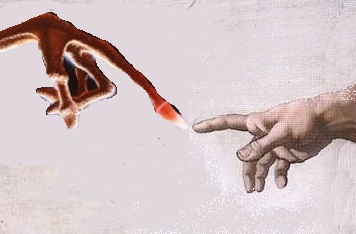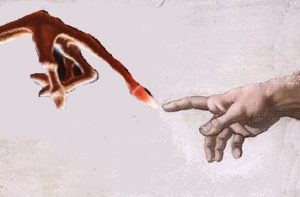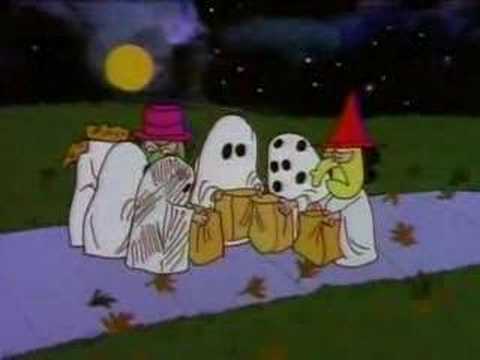Magic Realism, Part 2
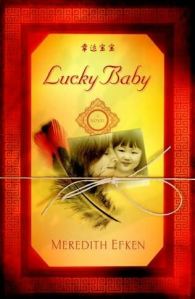
âWhat if I promised you that you would be able to see clearly all the way to where the earth and heaven meet?â
I peered up at it. When I looked at it, I saw clearly. When I looked away, all was dark again. But I had not lived my life as an orphan for nothing. I did not give my trust easily. âWhy should I want to see that?â
âWhy should you want to miss it?â The creature scolded me with a hiss. âYou are asking the wrong questions, Wen Ming. You have not asked who I am or why I call to you.â
âI think you are an evil spirit.â
âOr I might just be your imagination. Since your world is so small, I suppose you donât have much else to do other than create monsters in your mind.â
â Lucky Baby, by Meredith Efken (Howard Books, 2010)
Not only are there monsters in the mind, there are hopes and dreams. There are struggles and desires we dare not name. Do we impose a tidy package of carefully constructed beliefs in order to exercise a form of divination upon our unexplainable momentsâthis must mean that?
All too often. But by doing so, do we not risk stepping into the place of God, the Author and Finisher of our faith?
Itâs impossible to know the âthing in itself.â All our perception of phenomena is characterized, conformed, and clouded by our humanness. For instance, try to conceive the edge of the universe, and whatâs beyond. Weird, huh, being caught within time and space?
â Marc Schooley
Inconceivable, as a vertically-challenged villain was once known to say. Yet we bring all our perception of phenomena to bear on such far-flung fields as paleocosmology, and dare to state that our perceptions are authoritative, insofar as they confirm the representational cloud of smoke in which we prefer to subsist. (Would you quit blowing that in my direction.)
At the same time, we miss the âthing in itselfâ all around us, every day. For instance, we look at a loved one, but do we see that person or the representation weâve built of them through years of knowing?
â C.L. Dyck
From Pipe Dreams (Schooley/Dyck)
Christian fiction derives its cultural acceptability from its coherence with a set of beliefsâand relies on the idealistic assumption that the set of beliefs invoked is, in essence, a good and sound set of beliefs. Importantly, that framework is not transcendent, nor is its coherence particularly with the biblical; itâs based on whatâs acceptable to the broadest possible segment of the evangelical/religious-leaning reading market.
Problem: As I mentioned, perception is broken. As we shape our awareness of this problem, Christian writing is constantly under change. Postmodernism has been a popular responseâoh well, close enough, as long as enough people like it and can interpret it in their own way.
Alternately, we can use our art to examine our sense of perception. In the post quoted above, my writing partner and I took a nonfictional stroll through established philosophy on the matter. These are problems that have been tackled before from within the Judeo-Christian worldview, if we care to look beyond the New World and its aggressive divorce from the Old. To create a similar examination in a fictional environment, though, requires not analysis but a propositional approach, as Iâve written over at the editorial blog. One of the biggest reader-side stumbling blocks I see to Christian speculative fiction is the constant audience demand for analysis at the expense of purely propositional writing.
There are things we see that arenât there, just as there are things out there that we fail to see. There are things we wish to see that cannot be; just as things can be, though we wish they were not so. Magic realism attempts to encapsulate this phenomenon through exaggeration: can a 243-year-old man die for lack of shoes?
Magic realism allows for correspondence to define the truths within the world of the story. âThis is an accurate description of the event, whether or not it seems believable; therefore, this description corresponds with truth.â Even if that truth is a spiritual thing, embedded halfway in and halfway out of the broken machinery of perception, we count on the reliability of perception, not its deceptiveness, to stand in the gap. I saw it; therefore, in some way, it must be.
Magic realismâs symbolic context arises from within the text, unlike allegory, whose context arises from outside the text. We spend all too much time, I would argue, in imposing our outside sense of meaning onto the narratives we encounter: whether Tolkien or the biblical account, we are determined to see what we wish to see. This is not true interpretive reading. Rather, it bespeaks a lack of confidence in raw perception, as if we cannot see without a lens machinery locked into place between ourselves and the world.
One example of magic realism is when a character in the story continues to be alive beyond the normal length of life and this is subtly depicted by the character being present throughout many generations. On the surface the story has no clear magical attributes and everything is conveyed in a real setting, but such a character breaks the rules of our real world. The author may give precise details of the real world such as the date of birth of a reference character and the army recruitment age, but such facts help to define an age for the fantastic character of the story that would turn out to be an abnormal occurrence like someone living for two hundred years.
Remind you of anything?
Should we interpret? Iâd argue we canât exist as rational beings without interpreting the world around us. Just as over-interpretation lands us in a self-made box, refusing to interpret leads to a morass of deliberate non-knowing. Itâs a way of checking out of the responsibility to love the Lord your God with all yourâŠmind, among other aspects of the commandment. And eschewing interpretation is in fact a form of imposition. It imposes the notion that inherent meaning cannot possibly exist.
The problem arises when we decide, my interpretation/imposition is all there is. Or worse, my interpretation/imposition makes me happy. Yours may be different, but it doesnât matter as long as youâre happy too.
By the act of interpretationâor avoiding itâdo we reveal ourselves. Our complacencies, our comforts, our personal points of arrogance and indifference. Here, story becomes truly powerful, a sort of Sentience Engine deliberately designed to fracture our lens machinery and poke us in the eye. If the thing that differentiates man and animal is the soulâawareness of selfâthen story is the mystical machine that sifts our awareness and places us under examination. This reversal of the roles we had in mind is not necessarily comfortable, but that doesnât mean it isnât good.
When that poke in the eye is delivered, we may find ourselves somewhere weâve never imagined. Because life, too, has an Author and a story, and it behooves us to turn the page.
Cathi-Lyn Dyck has been a published writer and poet since 2004, and a freelance editor since 2006.
She can be found online at ScitaScienda.com.






































 Isaiah also specifically prophesied several ways in which Earthâs peoples, from many nations, will worship the Lord: with their ships, trade, national cultures, precious metals like gold and silver, incenses, trees, and animals (all throughout Isaiah 60).
Isaiah also specifically prophesied several ways in which Earthâs peoples, from many nations, will worship the Lord: with their ships, trade, national cultures, precious metals like gold and silver, incenses, trees, and animals (all throughout Isaiah 60).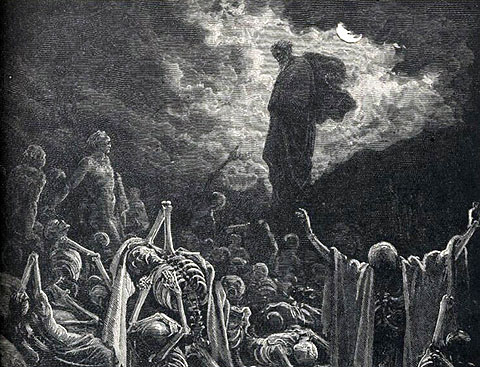















 But if God lives, the enterprise takes on a darker nature. It thrums with the blasphemy of Philip Ivywood: âThe world was made badly, and I will make it over again.â
But if God lives, the enterprise takes on a darker nature. It thrums with the blasphemy of Philip Ivywood: âThe world was made badly, and I will make it over again.â Speculative fiction has a way of elucidating spiritual ideas, showing the ends of beliefs. Often the ideas elucidated in SF were grown in the philosophy of Nietzsche and Darwin. No doubt that has worked to spur Christian leeriness of sci-fi and fantasy.
Speculative fiction has a way of elucidating spiritual ideas, showing the ends of beliefs. Often the ideas elucidated in SF were grown in the philosophy of Nietzsche and Darwin. No doubt that has worked to spur Christian leeriness of sci-fi and fantasy.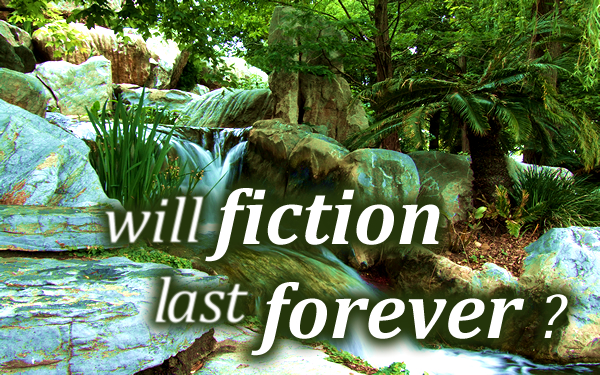
 Call me unspiritual. But if I tried, I might find a way to start this column in a dull way, especially if youâre (here comes the clichĂ©d gluttony joke) hung over from turkey.
Call me unspiritual. But if I tried, I might find a way to start this column in a dull way, especially if youâre (here comes the clichĂ©d gluttony joke) hung over from turkey.
